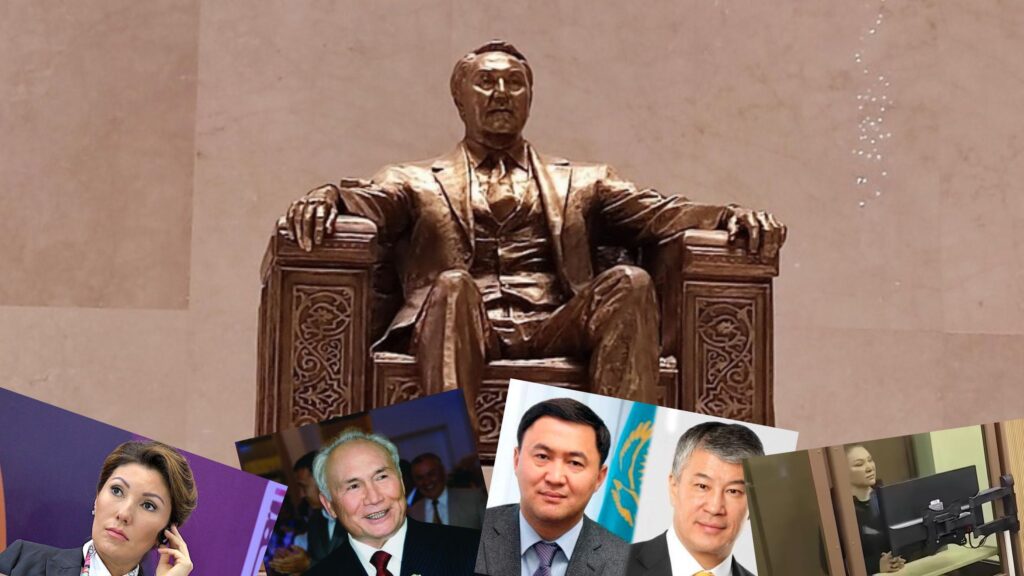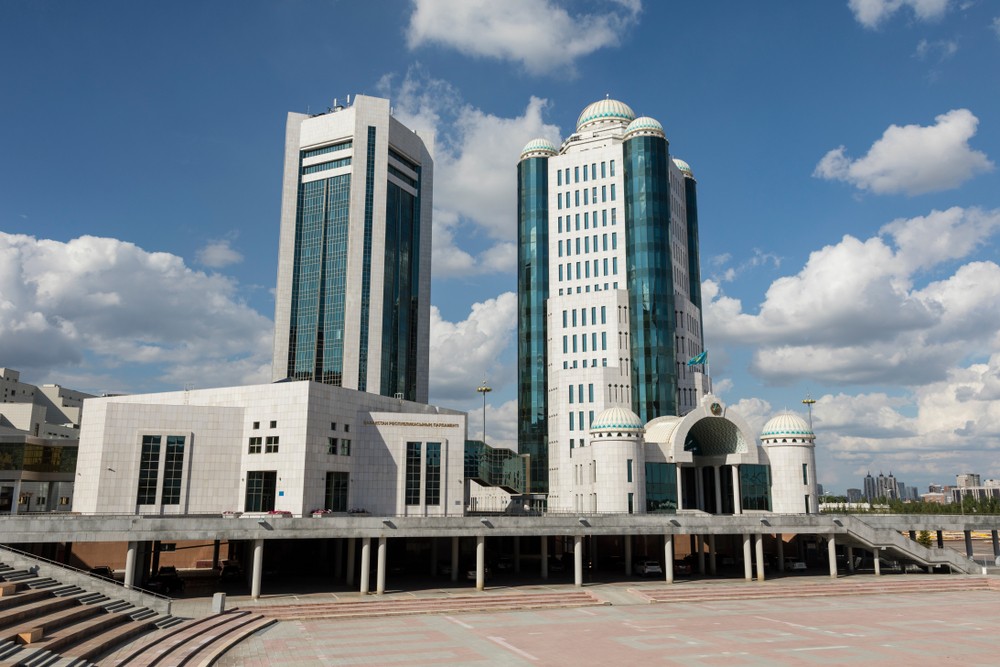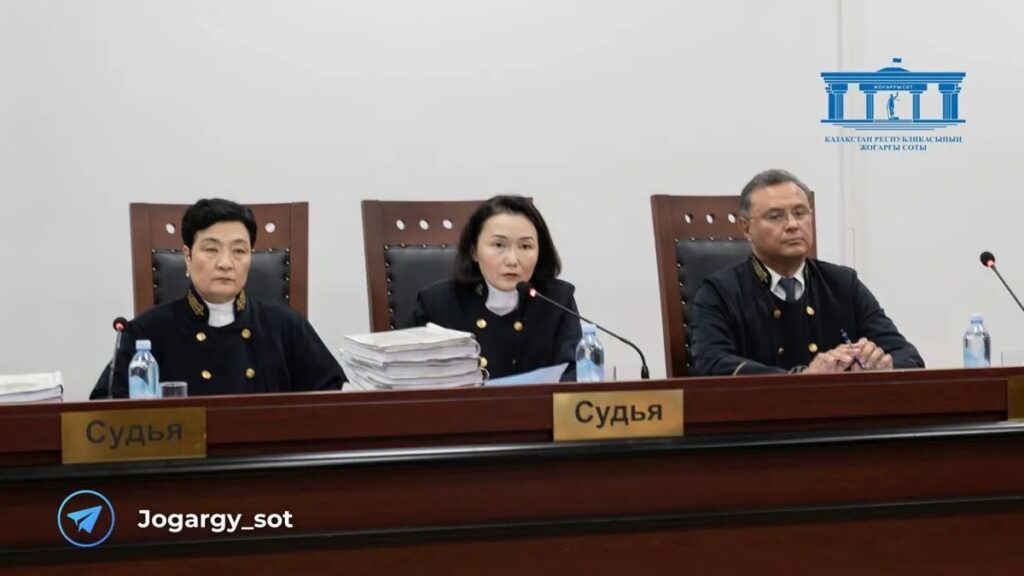The trial of Kuandyk Bishimbayev, a former Minister of the Economy of Kazakhstan, was a watershed event representing the growing role of civil society in the country, as well as the new political leadership’s success in breaking a decades-old cycle sustained by corrupt elites. In spearheading reforms to align his country with international best practices, President Kassym-Jomart Tokayev has also answered people’s demands. But public worries that Bishimbayev, sentenced to 24 years in prison for killing his wife, may be pardoned as soon as Tokayev leaves office shows how fragile the country’s institutional development remains and how its progress may still be on a ticking clock.
Kazakh politician Kuandyk Bishimbayev was convicted of murdering his common-law wife, Saltanat Nukenova, during an altercation between the couple in November 2023 at an Astana restaurant. Throughout the course of his trial, which started in March 2024, it became apparent that the violence caught on a CCTV camera was not a one-off incident, but the latest in a string of abuse. The video, also seen by the jury, includes scenes of a man grabbing a woman by the hair, kicking her, and hitting her in the face. Nukenova is said to have subsequently died from brain trauma.
Several factors drew international attention to the case, including the high-profile names involved, broadcasted court proceedings, wide social media engagement, and the commentaries from human rights figures and opinion leaders. The ultimate verdict handed down to Bishimbayev, 24 years imprisonment in a maximum-security institution, is in many ways unprecedented in post-Soviet states, and became a harbinger of changes in both Kazakhstan’s justice system and society. Bishimbayev’s cousin and the director of the restaurant where Nukenova was killed, Bakhytzhan Baizhanov, was also sentenced to four years in prison.
How a tragedy precipitated positive change
Saltanat Nukenova’s death, and the events following it, helped bring about new laws and perhaps even opened the way for further reforms. Just as importantly, they also increased legal literacy among Kazakhstan’s civil society. The government’s response, for its part, has garnered international praise.
Critically, the public tragedy expedited the implementation of positive steps that President Tokayev had previously wanted to take. Contrary to popular belief, Nukenova’s murder was not the basis of the initiative to re-criminalize domestic violence. This change had already been proposed by Tokayev in 2019, but was opposed by legislators, some of whom reportedly had themselves been previously associated with cases of domestic violence or abuse. The events surrounding Nukenova’s death provided the government with an opportunity to overcome domestic opposition and take steps to correct the country’s course on violence against women and children. On April 15, 2024, Tokayev signed a landmark law criminalizing violence against women and children, reversing a 2017 decriminalization.
The need for full-fledged judicial reforms has been advocated for by several international non-governmental organizations (NGOs) and public associations, as well as institutions in the United States and Europe. This is not surprising given that the country’s existing judicial system was largely formed under its first (and only other) president, Nursultan Nazarbayev.
The result of the criminal case against Bishimbayev demonstrated to Kazakhstan’s society that state courts can now be trusted to reach a fair verdict even against members of the country’s long-standing political and business elites. This may help President Tokayev’s attempts to implement a larger judicial reform agenda, which is already under way. A massive corruption probe since 2022 resulted in the recovery of almost $2 billion in assets stolen from the country by former state officials. There have been prosecutions of high-profile officials, including the former Minister of Justice.
Bishimbayev’s trial, and the open public discourse around it, also represent a milestone in the development of Kazakhstan’s civil society, which is gaining increased self-awareness. This can have additional positive consequences for the country and further bolster its standing in international rankings, especially with regards to women’s welfare.
These developments also show that public tolerance towards domestic violence, and violence against women in general, have decreased. The once-taboo issue has now moved from the confines of a traditional family setting to the public square.
Overall, international responses to Tokayev’s initiatives has been positive. After the third annual High-Level Dialogue on Human Rights and Democratic Reforms between the United States and Kazakhstan on May 20, 2024, the U.S.’ statement reaffirmed its strong support for the full implementation of President Tokayev’s reform agenda, commending “progress made in the advancement of human rights including the passage of the April 2024 law re-criminalizing domestic violence, a very important step in protecting survivors”. The U.S. added that “Respect for human rights and fundamental freedoms are integral to a prosperous, vibrant ‘New Kazakhstan,’ where independent media, civil society groups, and political parties can operate freely, without undue restrictions”.
Similarly, the United Nations Development Programme (UNDP) in Kazakhstan called the legislative initiatives protecting women’s and children’s rights a “crucial step towards equality, justice [and] safety for all citizens” that “lay a foundation for a stable, prosperous society.” The Organization for Security and Economic Cooperation in Europe (OSCE) has also said that it welcomed Kazakhstan’s laws “aimed at ensuring and protecting the rights of women and children”.
Credit where credit is due: The President charters the course
The rhetoric coming from the leadership matters, and Tokayev has long set the tone for his country on women’s rights. “Kazakhstan’s President Kassym-Jomart Tokayev has repeatedly spoken about strengthening protections for women,” The Washington Post wrote on May 13, 2024.
Tokayev has said that state authorities would take the opinion of the people into account and has demonstrated this through his actions by shaping legislation. In January 2024, he supported a public petition for criminalizing domestic violence, even though previously, government officials had rejected it on the grounds that a law on regulating petitions had not yet come into force. Taking personal interest in Saltanat Nukenova’s murder case, the President held consultations with state officials, including the head of the Ministry of Internal Affairs, the Prosecutor General, the Chairman of the Supreme Court and heads of other relevant departments.
The new law on domestic violence, signed by President Tokayev on April 15, was driven by his 2023 Presidential Decree for a Human Rights Action Plan that brought Kazakhstan in compliance with OECD standards. It is unprecedented in the CIS in terms of the deterrents and safeguards it places to protect women and children.
Underlining Tokayev’s role as the instigator of the new bill, MP Elnur Beisenbaev said in a parliamentary address that the changes tightening liability for crimes related to causing bodily injury and harm to health were based on the President’s acknowledgement of a related public petition on this issue. In addition to stricter criminal measures, the new law also brings accountability at the state level and ensures that law enforcement officials include females. The presence of female officials in all relevant areas remains critical: In Bishimbayev’s trial, for instance, a female prosecutor, Aizhan Aimaganova, was presided over by a female Judge, Aizhan Kulbaeva.
Upholding the rule of law is also important. On this issue, Tokayev has said, “The law must be the same for everyone. Justice in society is the solidarity of citizens in the name of strengthening the rule of law. A fair Kazakhstan is a country where law and order reign”. The fact that an influential, wealthy politician was found guilty in a court of law supports this claim.
In this new environment, more women can feel empowered to speak out. In one recent incident, Kazakhstan’s Ministry of Foreign Affairs has recalled Saken Mamash, an Embassy Counselor from the United Arab Emirates (UAE), after the publication of a video message by his wife, who alleged ongoing domestic violence. A criminal case has been initiated against Marmash.
A watershed moment for Kazakhstan: Seeing Tokayev’s “listening state” in practice
One of President Tokayev’s pillars in his vision for a “new” and “just” Kazakhstan is the presence of a state that listens to its people. In this instance, the President sided with the public and was responsive to their concerns.
Saltanat Nukenova’s tragic murder helped Kazakhstan transition to a new stage in the development of a real and active civil society. A youth movement called “Zhana Adamdar” (New People) held a rally against domestic violence in November 2023. Another rally called “For a decent life for women!” at the Gandhi Park in Almaty was mainly attended by university students holding posters and portraits of various victims. An “Evening of (NOT) Silence” in memory of Nukenova and other victims of domestic violence was also held in Almaty. More recently, the “#ZaSaltanat” movement went viral online, with women posting photos of themselves with a glass of wine to draw attention to the claims made by Bishimbayev’s defense team, who blamed Saltanat for drinking alcohol.
After Nukenova’s murder, Kazakhstanis sent more than five thousand letters to the country’s Senate demanding the criminalization of domestic violence. A famous petition (mentioned above) calling for re-criminalization of domestic violence gained over 150,000 signatures.
Following these developments, Kazakhstan’s Mazhilis passed new legislation in April 2024 making domestic assault and abuse causing even minor injuries a criminal offense, increasing the penalties for perpetrators, and adding new protections against the sexual harassment and the kidnapping of children. On the other hand, some activists criticized the law for not addressing stalking and the harassment of adults.
The legal process is now more transparent
Bishimbayev’s case also showed that Kazakhstan’s legal process is becoming more transparent. The court proceedings were broadcast to millions of observers in Kazakhstan and abroad. There were several cameras in the court room with good video and sound quality. On the Supreme Court’s YouTube accounts, videos of the trial received 1.5 million views with a record figure of simultaneous connections reaching 250,000.
This organic promotion of the trial showed an engagement that would be difficult to artificially manufacture. User-generated content with news and court comments led to heated discussions on social networks.
Regional impact is possible
Recent events have shown that Kazakhstan has come a long way towards becoming a regional beacon of democratic progress, including through its rising civil society. These events also seem to have captivated neighbors. A recent article in Foreign Policy, for instance, explained how Kazakhstan’s handling of the case has inspired Russia’s civil society to speak out publicly about domestic violence and demand guarantees of greater protections for women at risk.








